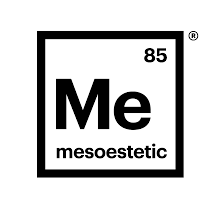Aesthetic medicine has become increasingly popular over the years, and more medical professionals are getting involved in this field than ever before. We have been receiving certain questions that are frequently asked by medical professionals who are new to the aesthetics industry. In this blog, we will explore some of the most frequently asked questions from medical professionals in aesthetics.
Delegates Frequently Asked Questions
What qualifications do I need to practice aesthetics?
To practice aesthetics, you must be medically qualified as a surgeon, doctor, dentist or nurse with a current registration with the GMC, GDC or NMC, or equivalent if you are an overseas delegate. It is essential to research the regulations in your region to ensure that you meet the necessary requirements.
How can I ensure that my patients are safe during aesthetic treatments?
Patient safety is of the utmost importance in aesthetic medicine. It is essential to undergo comprehensive training in the techniques and products used in aesthetics and to adhere to strict safety protocols. You should also ensure that you only use high-quality products from reputable suppliers and maintain a sterile clinical environment during treatments.
What are the most popular aesthetic treatments?
The most popular aesthetic treatments include Botox and Dermal Fillers, Platelet-Rich Plasma, Skin Boosters and Chemical Peels. These treatments can help to reduce the signs of aging, improve skin texture and tone, and enhance the overall appearance of the skin. Our most popular training course is the Foundation Botox and Dermal Filler Training Course. This is the first step in your journey into Aesthetics.
What are the most common side effects of aesthetic treatments?
The most common side effects of aesthetic treatments include redness, swelling, bruising, and tenderness at the injection site. These side effects are usually mild and resolve within a few days. In rare cases, more severe side effects such as infection or allergic reactions can occur.
How much can I expect to earn as an aesthetics practitioner?
Earnings in aesthetics can vary depending on the region, the practitioner’s level of experience, and the types of treatments offered. It can also depend on how much you want to work as we see a lot of medical professionals offering aesthetic treatments on a part-time basis. Either way, aesthetics is a lucrative career. If you are looking for career opportunities within aesthetics, visit the Clinic People website by clicking here.
How can I market my aesthetics practice?
Marketing your aesthetics practice can be done in various ways, such as social media, online advertising, and word of mouth. It is essential to create a professional website and social media accounts that showcase your services, before and after photos, and patient testimonials.
Aesthetics is a rapidly growing field, and it is essential to keep up-to-date with the latest techniques and products. As a medical professional, it is vital to prioritise patient safety and adhere to strict safety protocols. With proper training and education, an aesthetics practitioner can be a rewarding and lucrative career choice.
Find Out More
If we have missed your question from our Delegates Frequently Asked Questions you can always contact us and get this answered by our team. Our team are always on hand to support you every step of the way, from what to train in next to business and marketing advice. You can contact us by clicking here. Our Online Academy offers CPD training, enhancing your aesthetic learning for medical practitioners.
The Aesthetics Knowledge Hub is a great place for you to find answers to frequently asked questions from aesthetic practitioners. Here you will find out key information on the aesthetic industry.











